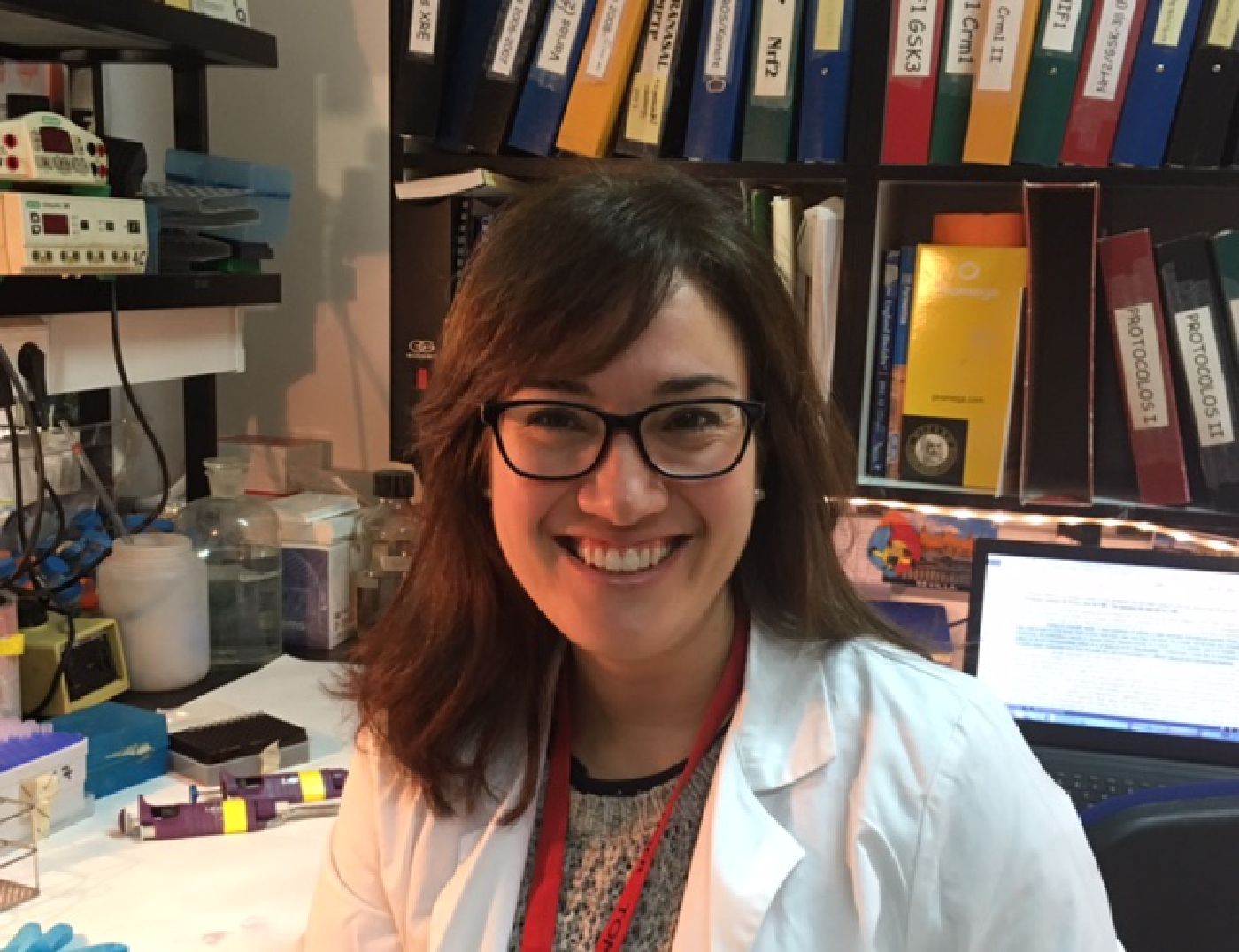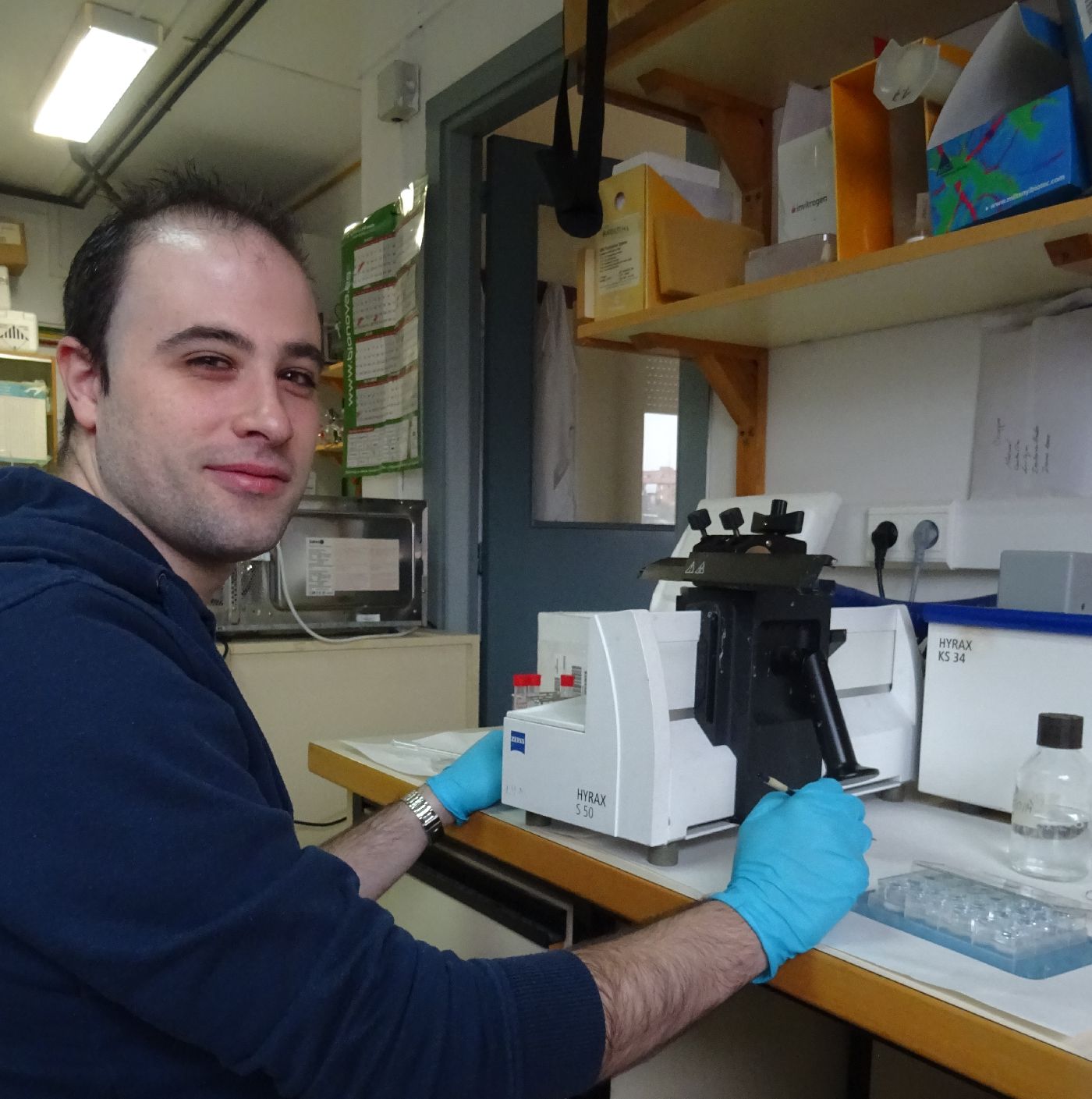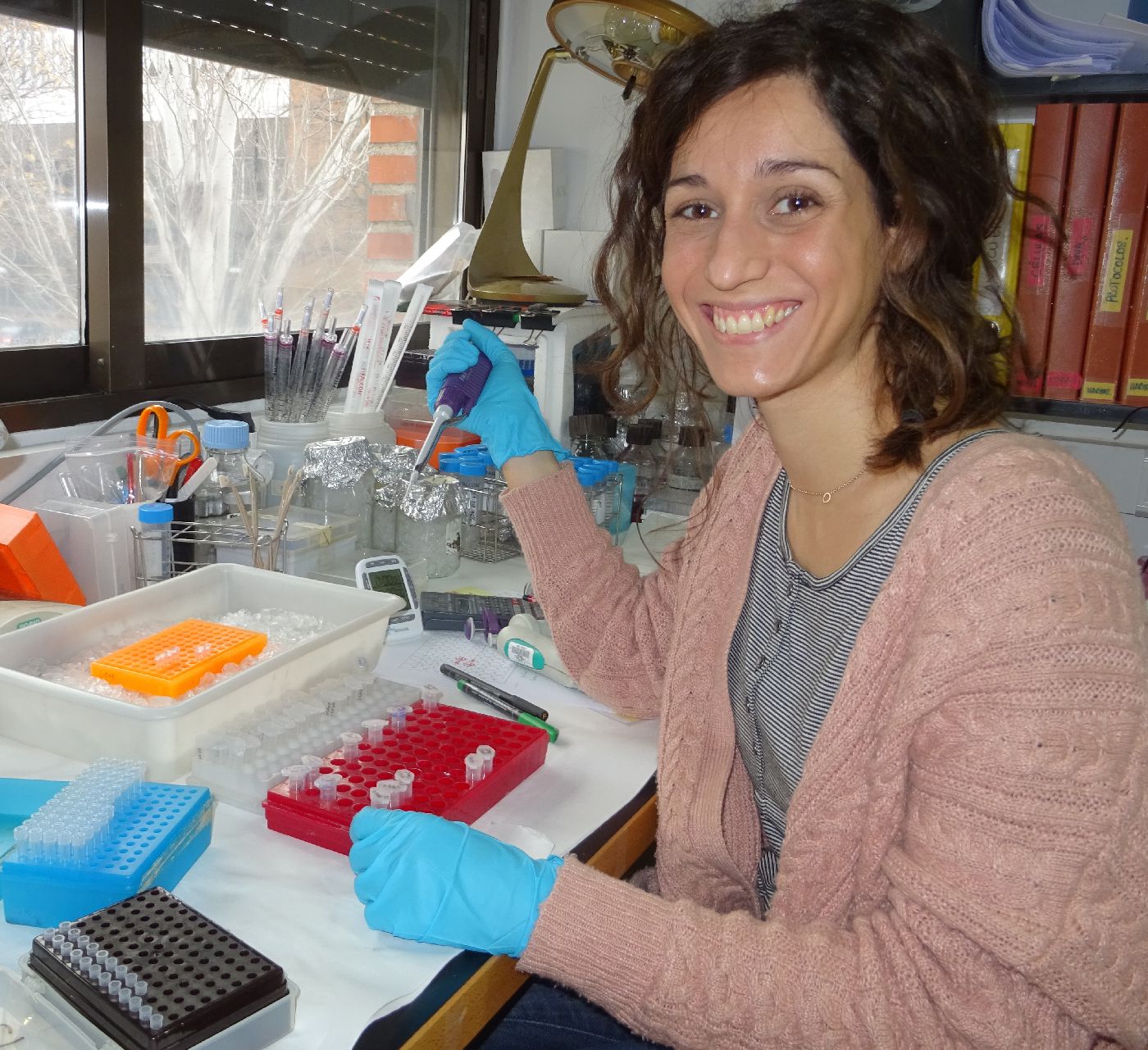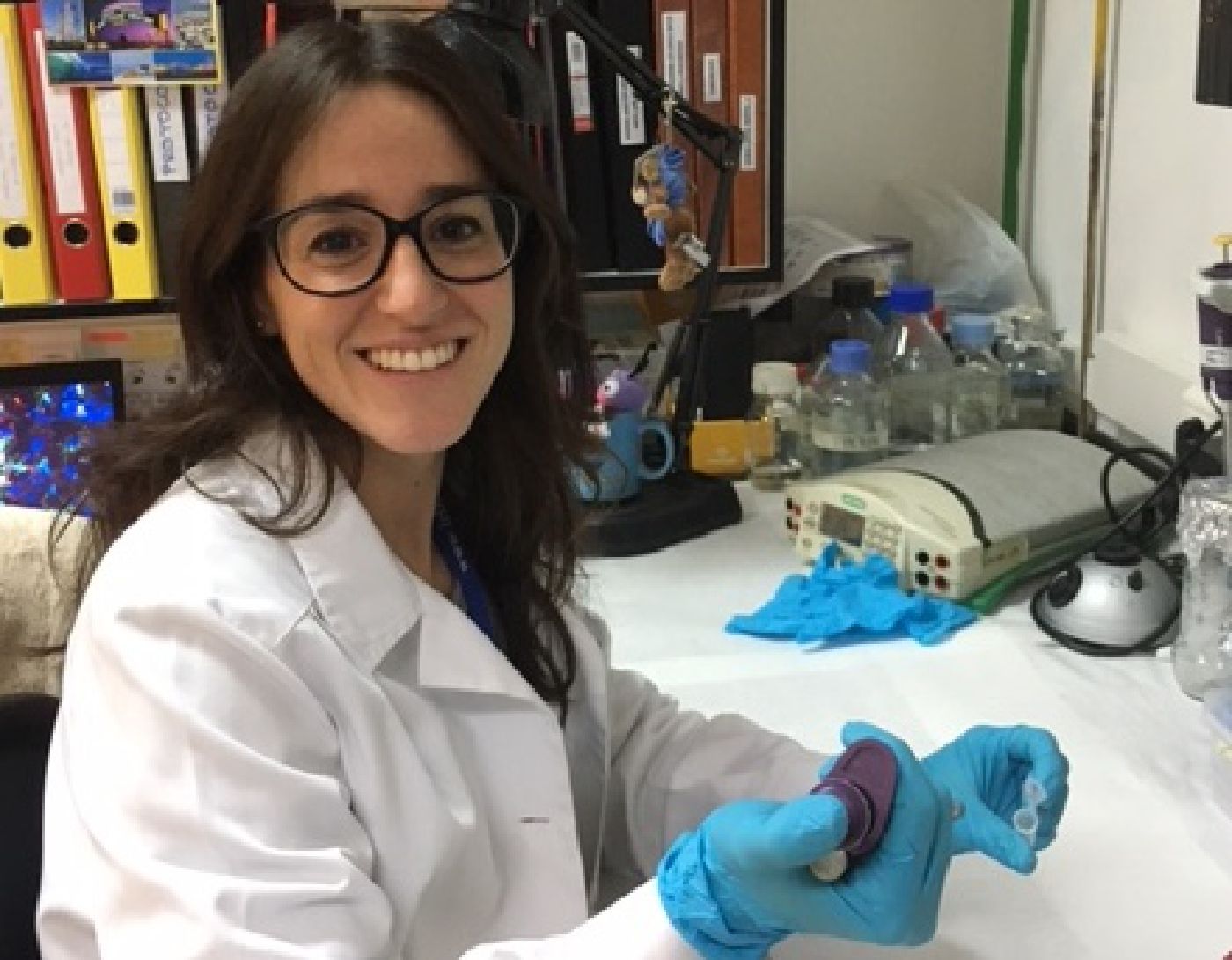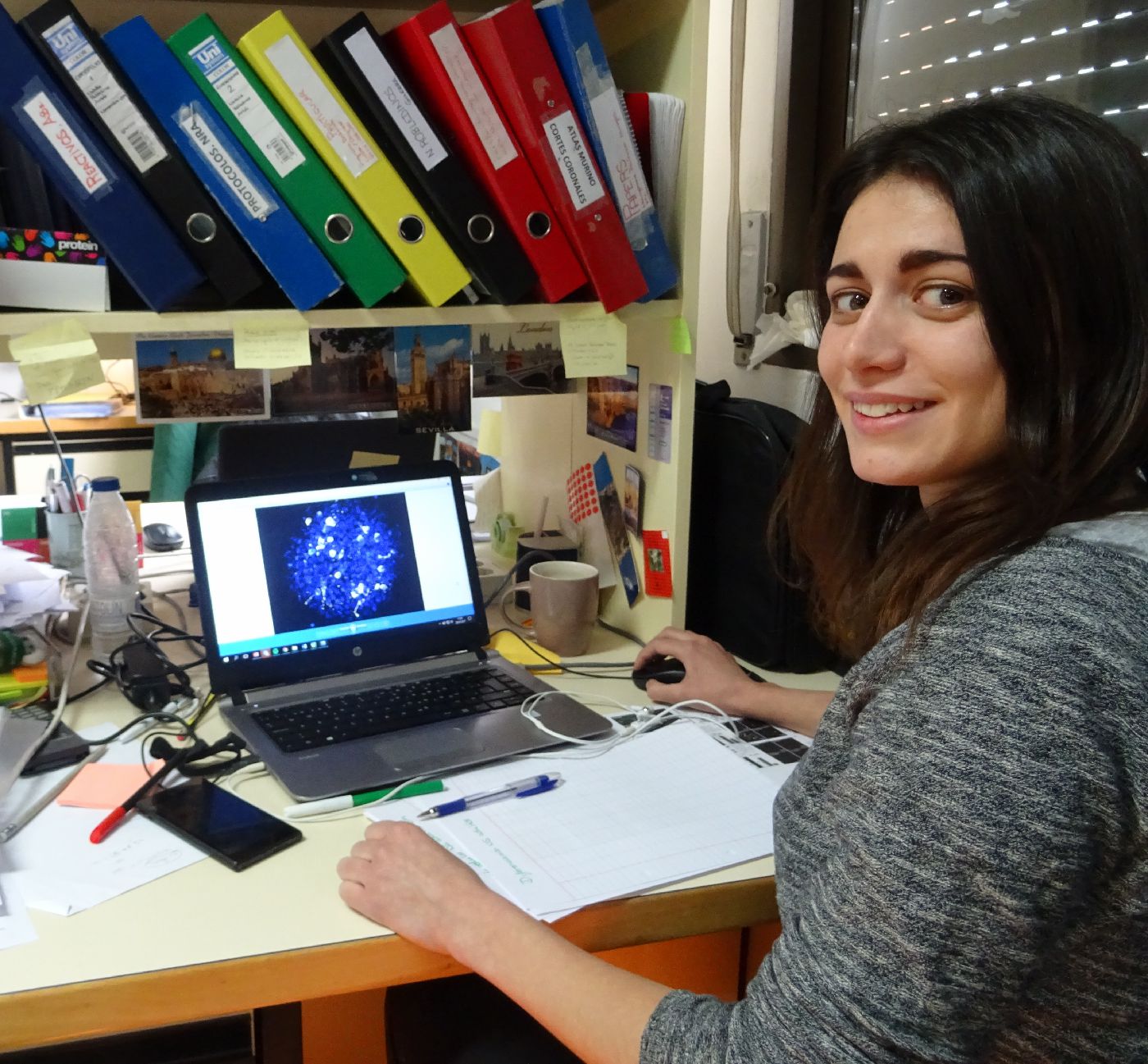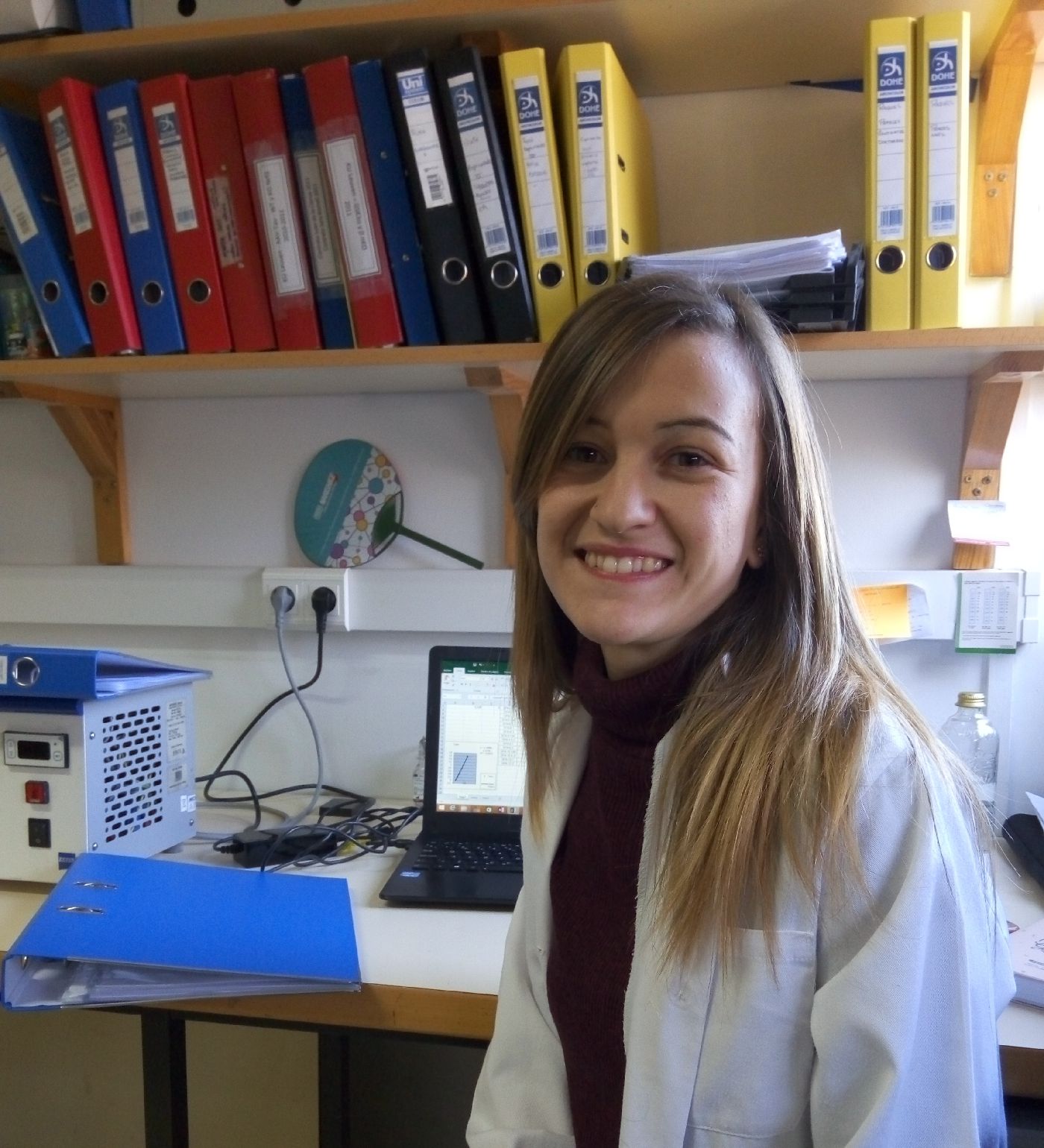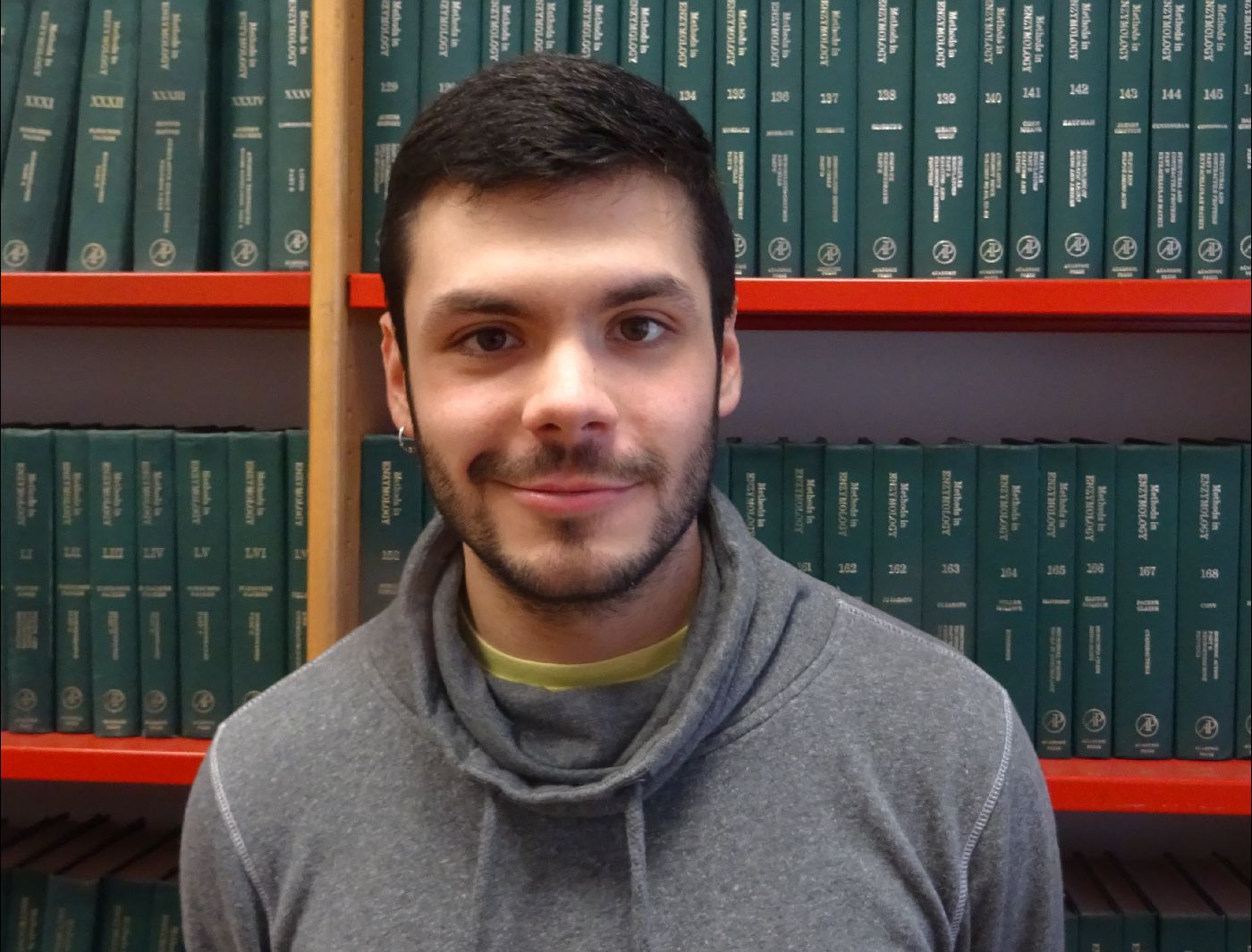Marta Pajares Cabetas
Contracted postdoctoral researcher (CIBERNED)
Marta Pajares scientific carrier is focused on the study of the molecular events involved in the progression of neurodegerative diseases with a main focus in the modulation of oxidative stress, neuroinflammation and proteostasis. Marta graduated in Biochemistry at the Autonomous University of Madrid in 2013 with excellent academic grades. Marta’s research activity began in Prof. Antonio Cuadrado’s laboratory (Instituto de Investigaciones Biomédicas Alberto Sols, CSIC-UAM) with a short stay in the summer of 2012 and the execution of her Degree final project during 2013. In this period, covered by a collaboration fellowship from the Spanish Ministry of Education, Marta was in contact with the techniques and concepts related to neurodegenerative diseases starting a project focused in the relevance of the transcription factor NRF2 in the off-side effects of the actual therapy for Parkinson’s disease based in L-DOPA treatment. In summer of 2013, Marta obtained a fellowship from the Spanish Association Against Cancer (AECC) for an internship in Dr. Sánchez Gómez laboratory (Neurooncology Unit, ISCIII) to study the pharmacological inhibition of EGFR in the development of neuroblatomas. Marta obtained a Master in Molecular Biomedicine at the Autonomous University of Madrid in 2014. She performed the Master final project in the laboratory of Prof. Antonio Cuadrado in order to analyze NRF2 role in the modulation of signalling and inflammation. Marta obtained her PhD in 2018 (Doctorate Program in Biochemistry, Molecular Biology, Biomedicine and Biotechnology) under the supervision of Prof. Cuadrado and Prof. Rojo, with International Mention and Cum laude mention. Marta’s research was focused in unveiling the neuroprotective role of NRF2 in a preclinical model of Alzheimer’s Disease, with special interest in the modulation of proteostasis. In 2015 and 2018, Marta did two research internships in in Prof. Cuervo’s laboratory, considered as a reference laboratory in the autophagy field (Albert Einstein College of Medicine, New York). Her PhD thesis has been awarded by the Real Academia de Doctores de España. With this background, Marta has presented her work in more than thirty national and international conferences/meetings, being invited to give oral communications and awarded in some of them. Marta has been supervisor of a Master’s Degree Final Project (2019) and is peer reviewer for Redox Biol. and J Mol Med Journals.
My CV
.
